Funded by the European Union. Views and opinions expressed are however those of the author(s) only and do not necessarily reflect those of the European Union or the European Education and Culture Executive Agency (EACEA). Neither the European Union nor EACEA can be held responsible for them.
Sustainable Sport Management

About the Project
 The project ‘Sustainable Sport Management (SSM)’ aims to address the issue of sustainability in the sport sector. The project focuses on the ‘Environment and Sustainability’ priority of the 2022 ERASMUS+ ‘KA2 Cooperation Partnerships’ call, but also intersects with other priorities such as ‘improving governance in sport’, ‘fight against climate change’, ‘digital transformation’, and ‘communications’. With almost 160 million regular sport participants in Europe, the sport sector has a significant environmental impact, and it is essential to implement sustainable policies and strategies to mitigate this impact.
The project ‘Sustainable Sport Management (SSM)’ aims to address the issue of sustainability in the sport sector. The project focuses on the ‘Environment and Sustainability’ priority of the 2022 ERASMUS+ ‘KA2 Cooperation Partnerships’ call, but also intersects with other priorities such as ‘improving governance in sport’, ‘fight against climate change’, ‘digital transformation’, and ‘communications’. With almost 160 million regular sport participants in Europe, the sport sector has a significant environmental impact, and it is essential to implement sustainable policies and strategies to mitigate this impact.
The project aims to address three gaps in knowledge and practice related to sustainability in sport. Firstly, there is a proliferation of sustainable measuring tools and methodologies, which creates conceptual and practical challenges. Secondly, there is no understanding of how sustainability is taught and implemented by higher education (HE) institutions and sport organizations. Thirdly, there is a lack of knowledge about the challenges and economic cost of implementing the sustainable development goals (SDG) by sport organizations nationally and internationally. To address these gaps, the project brings together a diverse group of actors from four EU member states and a leading US University, HE institutions, European and world sport organizations, and members with expertise in management, curricula design and delivery, sustainability design and implementation, and economic impact.
The project will also significantly enhance the capacity of both HE institutions and national and international sport organizations by developing new knowledge about sustainable sport management curricula and strategies. The project aims to prepare the next generation of sport managers who will lead more environmentally friendly sport and achieve net-zero GHG emissions by 2040. Additionally, the project will equip sport organizations with valuable knowledge and practical tools to change their approach to the planning and implementation of sustainable strategies. The proposed project will address organizational inclusion and diversity relevance criteria by engaging with all national and regional sport organizations in Europe, as well as a range of HE institutions.
Finally, the project objectives directly correspond to the expected outcomes of the Cooperation Partnerships call, including developing innovative approaches, enhancing the quality of HE, promoting cooperation between HE institutions and sport organizations, improving the quality and relevance of teaching and learning, and increasing the capacity of HE institutions and sport organizations. Overall, the SSM project aims to contribute to the development of sustainable sport management practices, promote environmental sustainability, and create new knowledge about the relationship between sport and sustainability.
Sustainability Cost Estimation Tool
A main challenge faced by sport organisations in implementing their sustainability programmes and initiatives has been their cost. The self-assessment tool below was developed to allow sport managers to estimate the overall costs associated with implementing a sustainability strategy or initiatives. The information entered into the tool is only available to those who work with it and is not shared or collected by a third party. Users are advised to download the cost estimation support guide, which provides background information about the tool and its application.
In case you do not have a Google account, you can also download the cost estimation spreadsheet.
Interactive Map of Sport Management Programs
Click on the pin to get more information about each program.
Partners
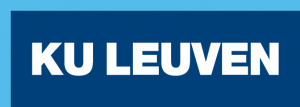
KU Leuven is a research and higher education institute founded in the fifteenth century and located in Belgium. It is the largest university in Belgium in terms of research funding and expenditure and was ranked 42nd in the Times Higher Education World University Rankings 2023. The institute encompasses fifteen faculties and is dedicated to providing high-quality education and research in nearly all fields. Its core mission is to conduct fundamental and applied research, provide education and training and participate in relevant networks and organisations. KU Leuven’s Interdisciplinary Centre for Ethics, Regulation and Integrity in Sport (iCERIS) a breeding ground for the application for this project, for which KU Leuven is the lead institution.
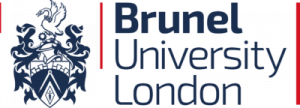
Brunel University London (BUL) (affiliated partner) is a research-intensive university which conducts world class projects worth hundredths of millions of pounds. It has a world class reputation for conducting sport development and policy research. The University’s Sport Division has been commissioned and delivered projects for major national and international agencies including Sport England, FA, Street Games, International Olympic Committee, World Anti-Doping Agency and others.
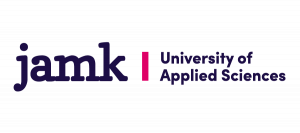
Jamk University of Applied Sciences is a creative reinvented institute of higher education. Jamk develops and strengthens learning, competence, and competitiveness together with partners and cooperation networks – both in Finland and around the world. Jamk has over 8 500 students and 900 employees. Sport Business by Jamk is a leading research and development solutions provider in the field of sport business and experience industry in Finland. Sport Business by Jamk provides research and development services for private, public and third sector organizations operating in sport.
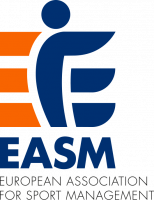
The European Sport Management Association (EASM) is the leading European association in the field, with 250 academic and professional members. It is involved in European research, organizing the largest annual European conference in sport management, and publishing a high-ranked journal (ESMQ). EASM will have a major role in data collection and dissemination of the project’s results.
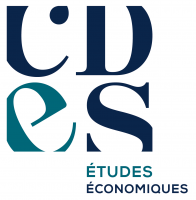
The Centre for the Law and Economics of Sport (CDES) was created in 1978, as a laboratory of the Faculty of Law and Economics of the University of Limoges. The CDES is made up of three different bodies contributing to its development: the university laboratory, the CDES-Progesport association and the law firm CDES-Conseil. The approach of the CDES is used for three major areas of strategic activity: training courses, publications, and sport industry consultations (in which the CDES is always trying to address sustainability issues). Moreover, the CDES is specialized in studying economic impact of sports.
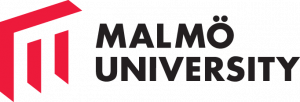
Malmö University’s Department of Sport Sciences in Sweden conducts interdisciplinary research with a focus on social aspects such as gender equality, socioeconomics, and cultural diversity in relation to sports. The department collaborates with various sports-related stakeholders in the community and offers undergraduate to third-cycle sports-related programs. They also emphasize sustainability in their research and educational programs.
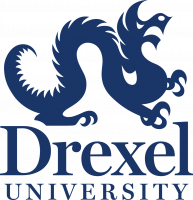
Drexel University in Philadelphia is a comprehensive research university committed to use-inspired research with real-world applications. Its research activities result in over $110 million in annual expenditures for sponsored projects, with faculty from all disciplines driving research. The university’s Office of Research and Office of Global Engagement facilitate research efforts and international partnerships.
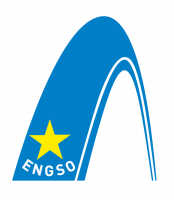
ENGSO is a European Sport NGO representing National Sport Confederations and National Olympic Committees from 33 European countries. Its mission is to promote the interest of sports organizations in Europe and be a bridge among different organizations dealing with grassroots sport activities. ENGSO advocates for the social role of sport, prioritizing the promotion of health-enhancing physical activity, education, training, employment and volunteering in sport, and social inclusion in and through sport. ENGSO also works as an advocate for grassroots sport and volunteering, regularly publishing positions on the topic and contributing to data collection and dissemination efforts.

World Athletics is the global governing body for athletics, representing over 1 billion people who run regularly. They have launched a Sustainability Strategy with a goal of being carbon neutral by 2030. The strategy is divided into six pillars and takes a two-tiered approach to deliver on its objectives by addressing areas in World Athletics’ control and engaging stakeholders to drive change more broadly.
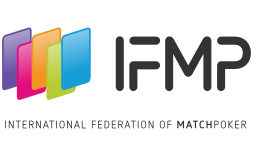
The International Federation of Match Poker (IFMP) is an international sports federation established in 2009 with over 70 national federations across 6 continents. It is dedicated to the growth and development of Match Poker as a mind sport played completely digitally on mobile devices. Sustainability is key to IFMP’s future growth, and it plans to create a “Sustainability Cup” linking sustainable businesses in Norway, Sweden, and the UK through a digital competition. IFMP wishes to minimize the environmental impact of its events while promoting sustainability.


